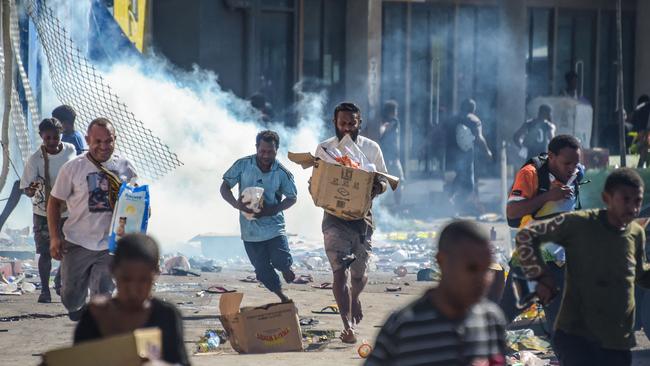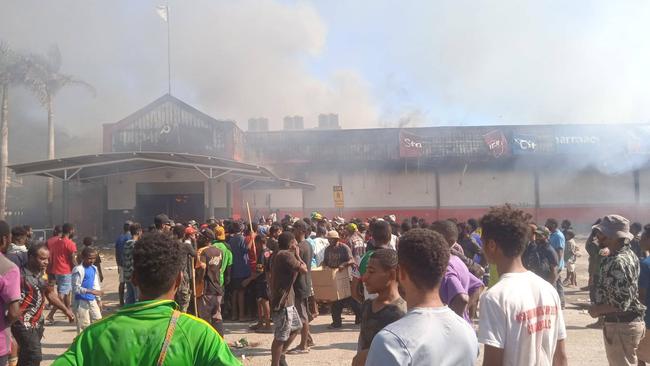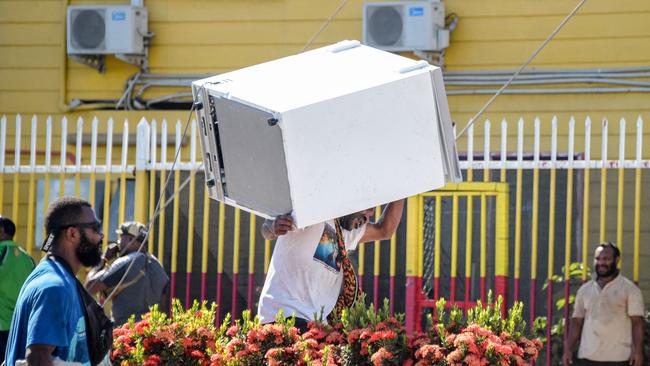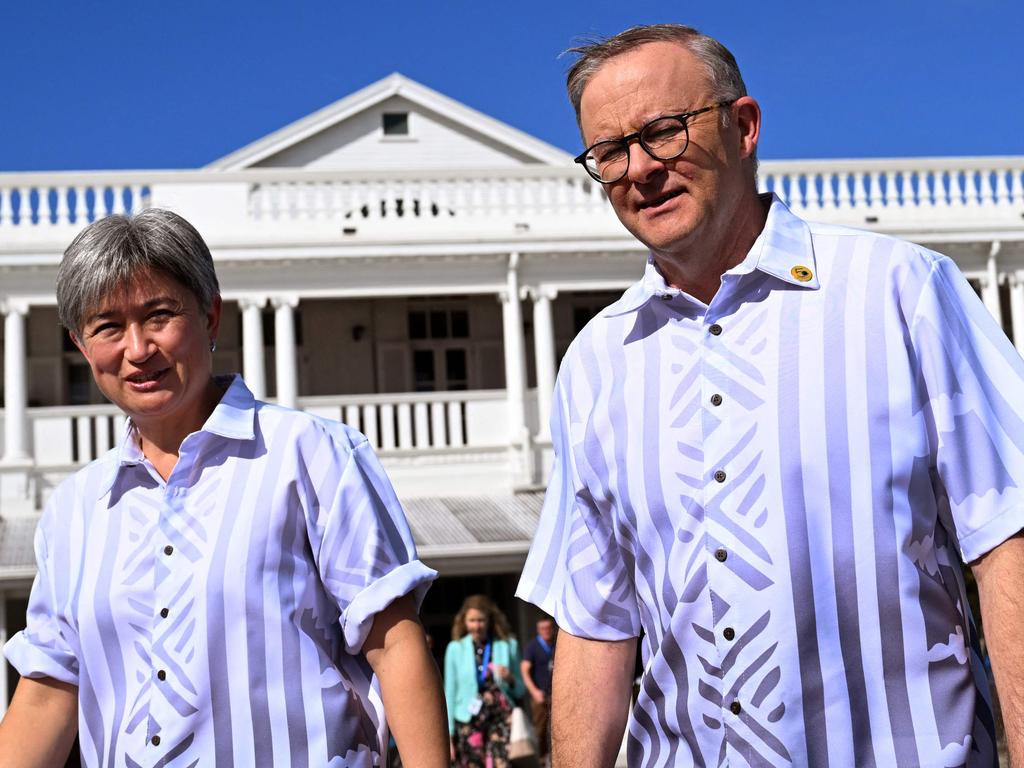Violence and looting erupt in PNG amid police, public servant pay ‘glitch’
Extraordinary video shows protesters including police and soldiers throwing stones and setting fire to buildings near the nation’s parliament in a furious rally over a payroll ‘glitch’ | WATCH

At least 10 people have reportedly died after violence erupted in Papua New Guinea’s capital on Wednesday when a payroll “glitch” sparked angry protests by police, soldiers and public servants, who surrounded the nation’s parliament and Prime Minister James Marape’s office.
Shops were looted and a supermarket torched as the chaos spread across Port Moresby, with the city’s ambulance service reporting multiple emergency calls over shootings and fires.
Local media reported the deaths as hundreds of protesters, including disgruntled police, corrections officers and soldiers, gathered outside the city’s main government building, throwing stones and setting fire to a guardhouse.
The city’s ambulance service reported multiple calls over shootings and fires across the city.
Mr Marape apologised to public sector workers for underpayments of up to $120 a fortnight, and blamed Department of Finance staff for the error.
“The police and public servant grievances are being addressed and by next pay the lost salary would be restored,” he said.
He appealed to the public to “protect the city”, as police and soldiers who spurned the protests were mobilised to restore order.
“To the public. This is your country. The business houses pay taxes and these taxes pay your children’s school fees as well as the salary we all earn.”
The protests come as Mr Marape faces a major test to his leadership through a potential vote of no confidence in the parliament.
The Australian government updated its travel advice for PNG late on Wednesday, warning of “widespread civil disorder and looting in Port Moresby”.
“Protests and civil disorder can escalate quickly. Monitor the local media, avoid areas where violence is occurring and be alert to personal safety risks,” it said.

The Department of Foreign Affairs and Trade said Australia’s High Commission in Port Moresby was closely monitoring the situation and was in close contact with PNG authorities.
Many of the protesters said they believed a new tax had been enacted – a claim denied by the country’s Internal Revenue Commission.
“There is no tax increase,” IRC Commissioner-General Sam Koim said in a statement.
“There was a technical glitch on the Alesco payroll configurations and hence the deductions.
“(The) Department of Finance, Department of the Prime Minister and IRC will issue a statement shortly and correct the situation.”
The violence comes just over a month after Australia pledged a $200m law and order funding boost for PNG as part of a new bilateral security agreement.


Under the deal, Australia agreed to fund the appointment of new judges, and the appointment of at least 50 Australian and Commonwealth police officers to work in PNG, where they will wear the uniform of the Royal Papua New Guinea Constabulary and answer to its chief commissioner.
Papua New Guinea’s Opposition Leader, Joseph Lelang, said the riots were a sign of a community in financial distress.
“Unemployment is very, very high,” he told the ABC.
“There are many frustrated people out there. And this is the only way they can air their frustration.”
“I’m just sad that we have come to this stage, that we have chaos in the city and the burning of business, houses and looting and all that.”

PNG has long struggled with violence and high rates of crime, fuelled by poverty and a lack of opportunities for the country’s youth.
At least 150 people were killed in tribal fighting in the country’s highlands last year, with contract killers battling it out on behalf of rival clans with high-powered military rifles, homemade guns and metre-long bush knives.
Mr Marape has promised to make PNG the “richest black Christian nation in the world”. But the country is facing a financial crisis that has stretched the government’s ability to provide basic services.
One of the country’s biggest earners, the Porgera Gold Mine, is due to reopen within days, offering a glimmer of hope that the country will get its economy back on track. But a raft of other mining projects are on hold, amid stalled approvals.
More Coverage








To join the conversation, please log in. Don't have an account? Register
Join the conversation, you are commenting as Logout